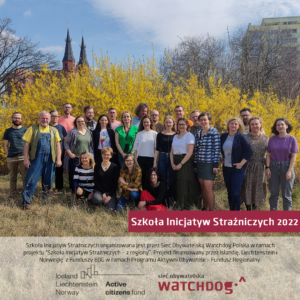
In December 2021, we launched the next edition of the Watchdog School (SIS). It is a series of meetings for residents of cities and communes observing the actions of local authorities, speaking out on public issues and standing for the change when problems are diagnosed where they live.
For many years the School has gathered around it people full of energy and ideas who work for the benefit of the local community. During the course, we show them tools to do this more effectively.
This edition of the School, recruitment north-west part of Poland. We wanted SIS participants to meet other people from their region and exchange experiences.
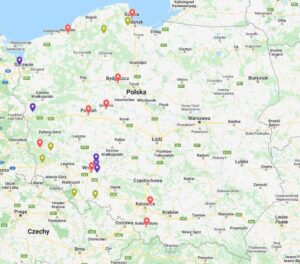
We have invited 20 people to join the School for online and onsite learning. The School offers:
- 10 webinars;
- 3 on-site training sessions on human rights, monitoring planning, communicating one’s actions and making other residents join the actions.
- Contact with other people who are engaged in similar activities.
- Substantive and legal support in ongoing activities (also after the academy has ended).
- Collaborative monitoring in a selected area and planning actions to be taken to stand for the change.
- It also covers the costs of training, accommodation, meals and travel.
First meeting in Wrocław
For the first three months we have worked online. The webinars held were related to the access to public information, freedom of speech, spatial development and the budget of city and commune. After three months of working together in this mode we could finally meet in Wrocław in person. This very diverse group of 20 people from different places, with different experiences, interests, at different stages of actions shared their energy, felt sense of community and were driven by inspiration.
Our three-day meeting was devoted to planning the monit
oring that participants are expected to complete during this edition of SIS. Before they started their work, they were thoroughly prepared by Edyta Widawska, who conducted the three-day course. Then they collectively chose five topics to address. These included areas such as environmental protection, public transportation, education, and perinatal care, among others. Over the next two days they worked in five groups to plan the activities they would implement in their commune or city as part of the group’s monitoring.
The topics chosen by the groups were not random, and the participants pursuing them are often not debutants in the given field. For example, many people have experience in environmental protection actions in their area. Remigiusz Krajniak from Żary fights against unnecessary tree felling Milena Dudzińska from Długołęka has been involved for many months in the protest against the construction of an electro-waste processing plant that may threaten the Natura 2000 site in her commune. Martyna Regent from Gdynia, together with other residents, for many years has been fighting a battle with the city to prevent a hotel from being built on Polanka Redłowska, a place of recreation for many residents of Gdynia. After six years, it proved a success. Marcin Jaworski from Bytów tries to make the local authorities and residents aware of the fact that dystrophic lakes should be protected, Alicja Matwiejczuk from Ośno Lubuskie wants to save drinking water and the surrounding lakes, rivers and springs from degradation. She is also involved in human rights advocacy and disaster relief. In turn, Michał Derencz from Radków is active in the group parents for climate whose motto are the words of Antoine de Saint-Exupéry – we do not inherit the Earth from our parents, we borrow it from our children.
The Academy also boasts persons engaged in educational issues – Ania Dęboń from Dąbrowa Górnicza has been active for years in the association Dopamine Lab which wants to make the school better and more student-friendly. Ania’s idea of monitoring was to examine schools’ by-laws to see if there were any provisions not in compliance with the law. Other SIS participants liked the idea and it became the object of one group’s monitoring.
Among this year’s SIS participants there were also people dealing with broadly understood perinatal care – Kasia Kołodziejczyk from Bydgoszcz is a co-founder of Małyssak Association which supports mothers in breastfeeding. Ania Furmaniuk works in a similar field in the Matecznik Foundation in Poznań whose mission is to support families and women, especially in the perinatal period. Kasia and Anna will observe the Family Education classes and their curriculum as part of their monitoring during SIS. They were also joined by Ada Klimaszewska, an active resident of Wrocław, who is also active in the Różowa Skrzyneczka Foundation which advocates for universal access to free menstrual hygiene products in public space. Joanna Wolska from Bielsko-Biala, a city activist active, among others, in the Women’s Strike is also involved in the cause of defending women’s rights .
We could not miss the local journalists who raise issues close to the residents and alert on irregularities, such as Grzegorz Krakowiak who runs the portal Mierzyn.pl or Janusz Lesiński publishing in Echo Zawoni.
Many of the participants in this edition of the Watchdog School are residents who simply care about making a commune a friendly place and when they see that something can be changed or they can convince officials to make a change for the better, they try to do so. They also care about transparency and compliance with procedures by officials. The following persons operate in such a way on a daily basis: Urszula Mesjasz from Ruszów, Marcin Cichowicz from Czaple, Paweł Szymczak from Kałków, Grzegorz Kosinski from Gniezno, Anna Sołtysiak and Ewa Burnecka from Czernica commune and Rafał Wolny from Koszalin. For many of them, where they live is a conscious choice – they wanted to live in this particular commune because of its natural beauty, for example. They want the best life possible in the place on Earth they have chosen for themselves and they are very determined to do so.
The meeting in Wrocław is not only a training session and meeting with the Watchdog Poland Civic Network, but also an opportunity for participants to get to know each other and exchange experiences.
At the end of the three-day meeting, the female and male participants emphasized that they left inspired, energized, and feeling a sense of community. They also gained a different perspective on their actions, saw what works in other communes/cities and what is worth doing. And most of all, they learned that there are many like-minded people around, and that a group gives you a sense of power and greater self-agency. Someone said that through the training he found “little stones that I can move to get something moving in my community”, someone else said that after the training he already has a strategy for his action. Thank you all for your attendance, we extend great thanks to dr hab. Edyta Widawska – prof. at the University of Silesia (UŚ), an expert from the Helsinki Foundation for Human Rights and a member of the Citizens Network Watchdog Poland for conducting this three-day workshop. For us – the organizers – it was a valuable experience and we are already looking forward to the next meeting and the results of the planned activities.
Second meeting in Poznań
The first day of the course was devoted to human rights. Szymon Osowski, lawyer and president of the Citizens Network Watchdog Poland, talked about the origins of human rights and how their meaning has expanded from the American Declaration of Independence to the EU Charter of Fundamental Rights. Of course, he focused his deliberations on the Universal Declaration of Human Rights. On Saturday, there was time for practice – participants analyzed human rights issues that have recently appeared in the Polish public space.
The second part of the training, conducted by Katarzyna Batko-Tołuć and Marzena Błaszczyk, was devoted to conducting watchdog activities. School participants talked about what pushed them into watchdog work and what change they want to achieve.
The female and male participants of the training also talked about tools for effective control over the authorities with Krzysztof Pietruszewski, a member of the Citizens Network Watchdog Poland, who has been active in Konin for several years and runs a local portal Konin.mamprawowiedziec.pl. Krzysiek also talked about the issues he deals with locally and how his cooperation with the residents and local authorities looks like.
SIS is not only about conventions and webinars, it is also about working in groups implementing the monitoring they have planned. They will talk about them at the next convention.
The Watchdog Initiative Academy is organized as part of the project the “Watchdog Initiative Academy – 2 regions”. This project has been funded by Iceland, Liechtenstein and Norway from the EEA Funds under the Active Citizens Programme – Regional Fund.


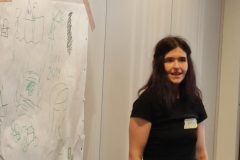




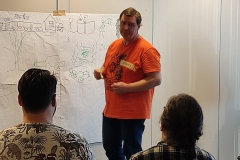

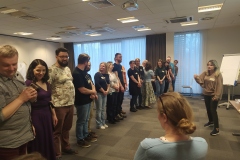
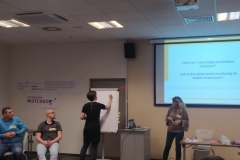
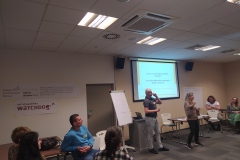
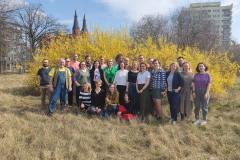
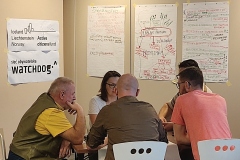
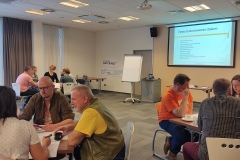

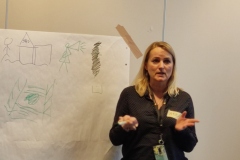

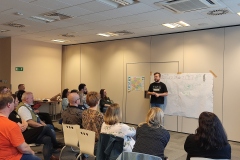
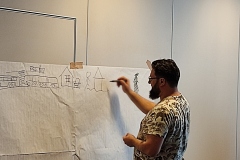
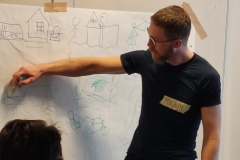

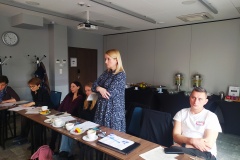

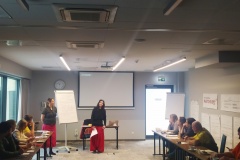
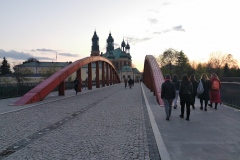
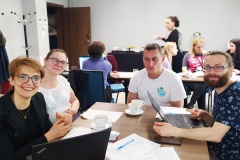

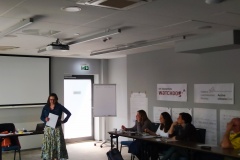

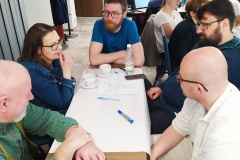
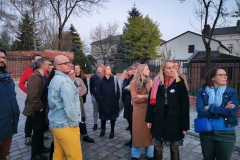

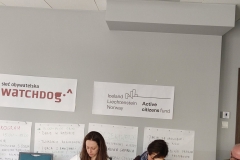
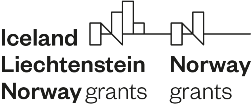
Comments